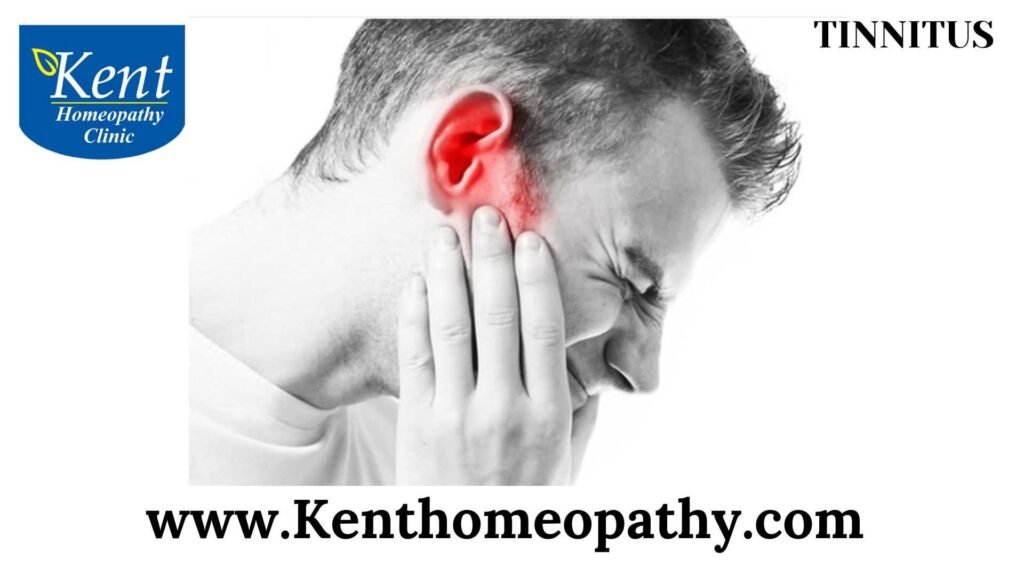Tinnitus

Tinnitus: Unraveling Symptoms, Causes, and Types
Tinnitus is a condition characterized by the perception of noise in the ears or head when no external sound source is present. This auditory phenomenon can vary in intensity and duration, affecting millions of people globally. Understanding the symptoms, causes, and types of tinnitus is essential for managing this often persistent and bothersome condition.
Symptoms:
- Ringing, Buzzing, or Hissing Sounds:
– The hallmark symptom of tinnitus is the perception of sounds that aren’t external to the body. These sounds can manifest as ringing, buzzing, hissing, whistling, or even roaring noises.
- Constant or Intermittent:
– Tinnitus may be constant, where the sound is present without cessation, or intermittent, with periods of silence between episodes.
- Unilateral or Bilateral:
– Tinnitus can affect one ear (unilateral) or both ears (bilateral). The nature and characteristics of the perceived sounds may differ between ears.
- Associated Hearing Loss:
– Some individuals with tinnitus may experience concurrent hearing loss. The severity of hearing loss can vary, and it may be more pronounced at certain frequencies.
- Impact on Concentration and Sleep:
– Tinnitus can interfere with concentration and sleep, affecting an individual’s overall quality of life. The constant presence of internal sounds can be distressing for some.
- Pulsatile Tinnitus:
– In some cases, individuals may experience pulsatile tinnitus, where the perceived sound synchronizes with the heartbeat. This can be associated with vascular issues.
Causes:
- Noise-Induced Hearing Loss:
– Exposure to loud noises, whether from occupational settings, recreational activities, or traumatic events, can damage the delicate structures of the inner ear and lead to tinnitus.
- Age-Related Hearing Loss:
– Age-related hearing loss, known as presbycusis, can contribute to tinnitus. As individuals age, the auditory system undergoes changes that may lead to both hearing loss and tinnitus.
- Earwax Blockage:
– Accumulation of earwax in the ear canal can obstruct sound transmission and cause tinnitus. Removal of excess earwax may alleviate symptoms.
- Meniere’s Disease:
– Meniere’s disease is a disorder of the inner ear that can cause vertigo, hearing loss, and tinnitus. It is associated with fluid imbalance in the inner ear.
- Ototoxic Medications:
– Certain medications, termed ototoxic, have the potential to damage the auditory system and cause tinnitus. These may include some antibiotics, diuretics, and cancer medications.
- Temporomandibular Joint (TMJ) Disorders:
– Dysfunction of the temporomandibular joint, which connects the jaw to the skull, can lead to tinnitus. The close proximity of the jaw joint to the ear may contribute to auditory symptoms.
- Head and Neck Injuries:
– Trauma to the head or neck, such as a concussion or whiplash, can affect the auditory system and result in tinnitus.
- Vascular Disorders:
– Certain vascular conditions, including high blood pressure and turbulent blood flow, can cause pulsatile tinnitus, where the perceived sounds synchronize with the heartbeat.
- Infections and Diseases:
– Infections of the ear or diseases affecting the auditory system, such as acoustic neuroma, may contribute to tinnitus.
- Stress and Anxiety:
– Emotional factors like stress and anxiety can exacerbate tinnitus or contribute to its onset. The interaction between psychological factors and tinnitus is complex.
Types:
- Subjective Tinnitus:
– Subjective tinnitus is the most common type, where only the person experiencing it can hear the internal sounds. It is often associated with noise-induced hearing loss, age-related hearing loss, or various underlying conditions.
- Objective Tinnitus:
– Objective tinnitus is less common and occurs when both the person with tinnitus and others can hear the internal sounds. This type is often associated with vascular issues, muscle spasms in the middle ear, or abnormalities in the auditory system.
- Pulsatile Tinnitus:
– Pulsatile tinnitus is characterized by rhythmic sounds that coincide with the heartbeat. It is often associated with vascular conditions, such as high blood pressure, turbulent blood flow, or vascular tumors.
- Somatic Tinnitus:
– Somatic tinnitus is influenced by movements or palpations of the head, neck, or jaw. Changes in posture or muscle contractions may modulate the intensity or characteristics of the perceived sounds.
- Neurological Tinnitus:
– Neurological tinnitus is associated with disorders affecting the nervous system, such as multiple sclerosis or traumatic brain injuries. It involves alterations in the neural pathways involved in auditory perception.
Contact to know more
Contact
Timings
Monday to Saturday:
11:00 AM to 02:30 PM
06:30 PM to 09:00 PM
